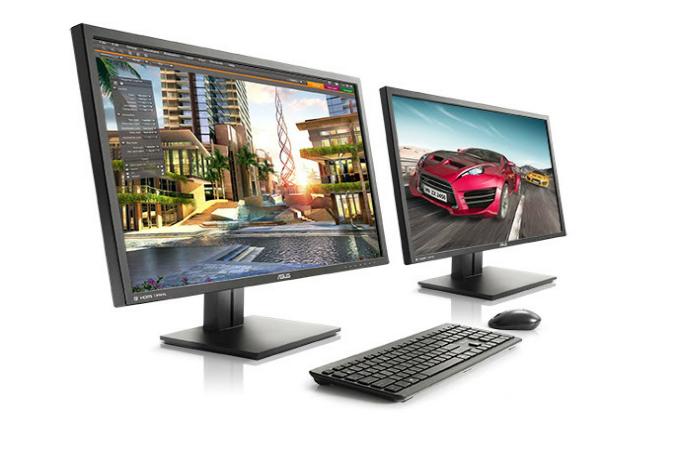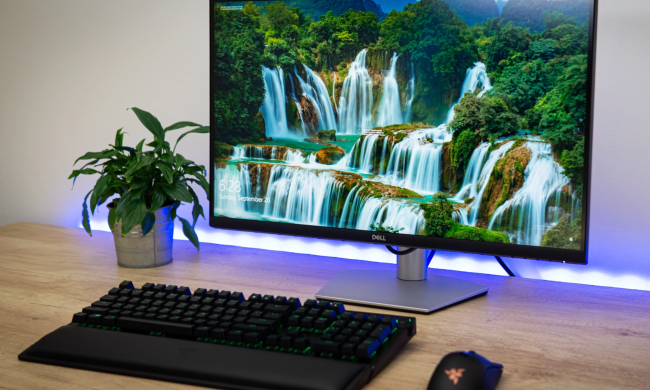
When 4K monitors initially hit the market, they caused quite a bit of sticker shock, carrying price tags in the thousands. However, in the past few months, companies like Dell and Samsung have been releasing sub-$1,000 4K displays. Now, Asus has gotten in on that game as well, with its brand new PB287Q 28-inch 4K monitor.
The PB287Q sports a display resolution of 3,840×2,160, can display 1.07 billion colors, supports refresh rates up to 60 Hz, and has a response time of 1ms. The WLED lit monitor wields a 16:9 aspect ratio, and claims a pixel density rating of 157 pixels per inch. Brightness is rated at 330 cd/m2.
Propped up by a square-ish base, the PB287Q is supported by a rectangular black neck, and wears a similarly black bezel all the way around. An Asus logo is perched on the bottom-center portion of the bezel. The stand will allow you to adjust the display’s height, and tilt it in multiple ways.
With picture-in-picture support, the PB287Q lets you plug in a second video source, and display that content in a window on the monitor at resolutions up to 1080p. The picture-by-picture feature, on the other hand, permits you to plug in two PCs into the monitor at the same time and display content from both systems by splitting the PB287Q’s screen in half. Port selection consists of DisplayPort 1.2, HDMI 1.4, HDMI/MHL, and a pair of 3.5 mm audio jacks. A pair of two-watt speakers are built in as well.
Perhaps best of all, the PB287Q is quite affordable. Once it hits the market in mid-June (an exact release date is unavailable), it will retail for $649. Though that undercuts the U28D590, a 28-inch 4K display from Samsung that can be had for around $680 – $700 right now, it’s a bit more expensive than the Dell P2815Q, another 28-inch 4K display that’s currently being sold for as low as $579 online.
Does that mean that the Dell is automatically a better value than the PB287Q? Not necessarily, but we won’t know for certain until we can get a review unit in. Either way, the prospect of a 28-inch 4K display for less than $700 is undeniably intriguing.
What do you think? Sound off in the comments below.


